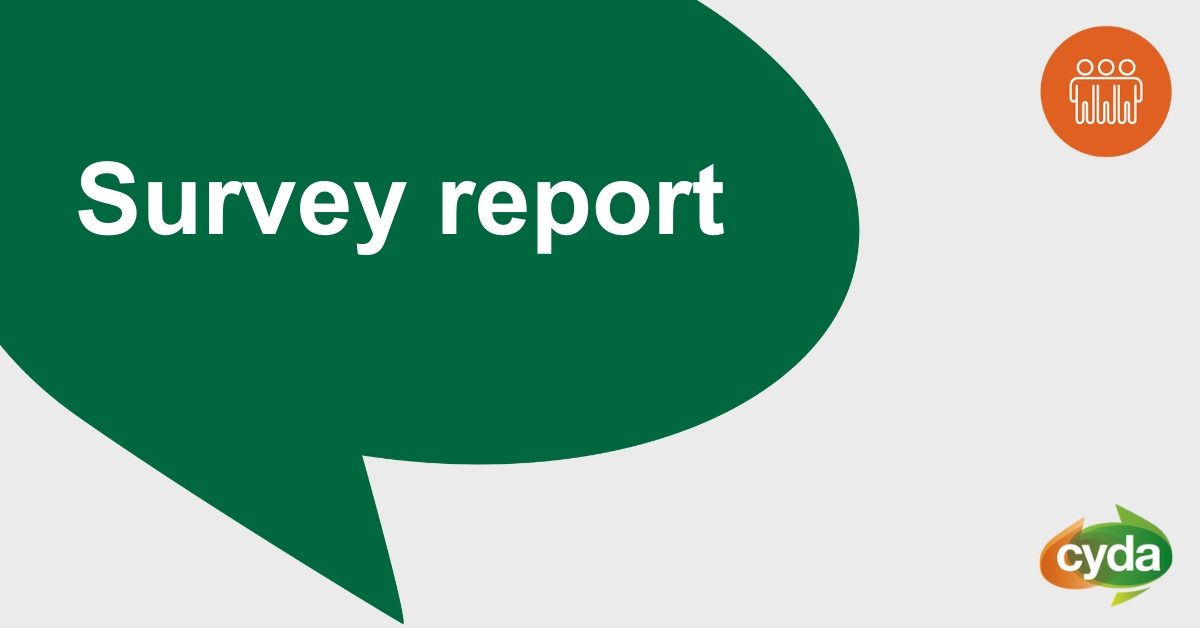⚠️ Content note: Bullying and discrimination.
Summary in Auslan 👉
Summary in Auslan 👇
About this survey
Children and Young People with Disability Australia (CYDA) has been gathering feedback on educational experiences from its members via formal surveys since 2010. This survey repeats that conducted in 2019 to explore whether similar trends are found and what progress has been made.
Survey questions were about the types of services and supports accessed, perceptions of resources available and training of professionals, and whether children have experienced exclusion, seclusion or bullying. Responses were collected from May–August 2022, with respondents from all states and territories (with the majority from New South Wales, Victoria and Queensland). CYDA partnered with researchers from the Public Service Research Group, UNSW Canberra and Melbourne Graduate School of Education, University of Melbourne to analyse the data and prepare this report.
Results
The positive news in this survey is that families and caregivers in the main broadly agree that they are made to feel welcome in schools (61% of respondents). However, just 28% of respondents feel that teachers and support staff have the necessary education and training to provide a supportive and enriching education environment for students with disability.
The survey also finds that around one fifth of families have been asked to limit the hours their child attends school for. 15% of respondents had experienced a child being refused enrolment in education and some found that enrolment was only accepted after significant parental advocacy. 29% of respondents had experienced their child being excluded from events, excursions or activities in school. A further 50% of respondents reported that their child has experienced bullying within school that may be physical or psychological nature. 25% of respondents reported that their child has experienced restrictive practices in an education setting.
Although 72% of students were reported to have an Individual Education Plan (IEP) in place, these were largely seen as being lacking and either did not accurately capture their child’s needs or were not being implemented sufficiently. While 83% of respondents had NDIS plans in place for their children, just 16% indicated that they were able to use these funds in supporting their child to engage with education. 34% of families and caregivers had paid for supports at school for their child.
More than half of respondents had made a complaint about their student’s school or education experience, while a further 15% has needed to make a complaint but had not proceeded with this. Often those who had not complained had done so as they were concerned about the potential repercussions of such an action. Most reports were in relation to student support services and bullying, harassment or victimisation. Just 18% of those who had complained felt satisfied with the outcome of the process.
From free text comments there is a strong theme that families have to undertake significant advocacy work in order to achieve good or event satisfactory outcomes in the education of students with disability. Some respondents reported distressing school experiences that has left their child traumatised, self-harming, speaking about suicidal ideation or attempting suicide. Such findings speak to the need to support students with disability much more comprehensively to avoid doing harm that will affect them throughout their lives.
In comparison to the previous survey in 2019 it appears that the broad trends are largely similar and there are few areas of significant change for children with disability in their experience through the education system. In some senses this may be seen as a positive, particularly given that we saw the emergence of COVID-19 between these two surveys.
But this also suggest that we are not seeing substantial improvements to the educational experiences of children and young people with disability and instead somewhat of a stagnation of these inequities.







